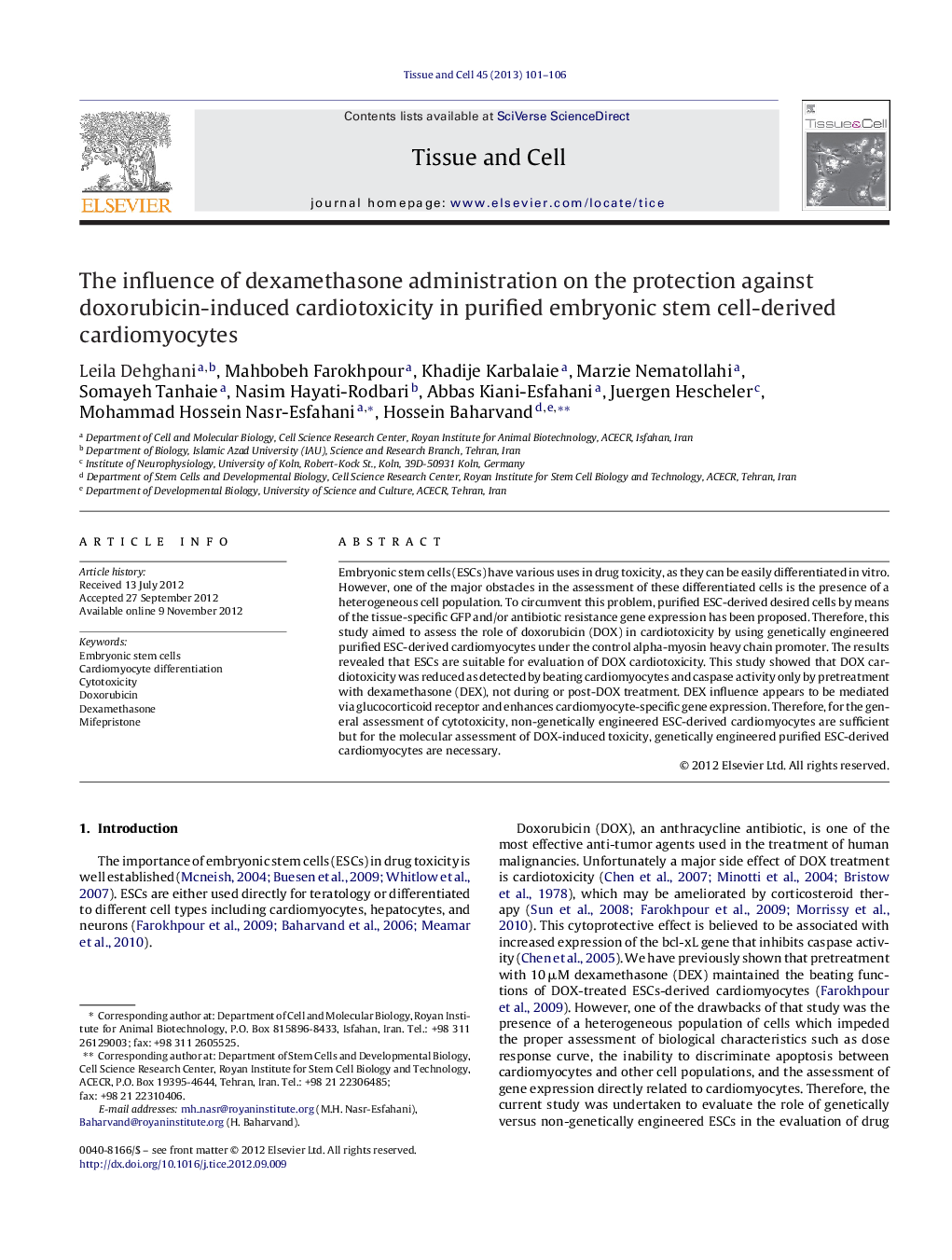| Article ID | Journal | Published Year | Pages | File Type |
|---|---|---|---|---|
| 2203960 | Tissue and Cell | 2013 | 6 Pages |
Embryonic stem cells (ESCs) have various uses in drug toxicity, as they can be easily differentiated in vitro. However, one of the major obstacles in the assessment of these differentiated cells is the presence of a heterogeneous cell population. To circumvent this problem, purified ESC-derived desired cells by means of the tissue-specific GFP and/or antibiotic resistance gene expression has been proposed. Therefore, this study aimed to assess the role of doxorubicin (DOX) in cardiotoxicity by using genetically engineered purified ESC-derived cardiomyocytes under the control alpha-myosin heavy chain promoter. The results revealed that ESCs are suitable for evaluation of DOX cardiotoxicity. This study showed that DOX cardiotoxicity was reduced as detected by beating cardiomyocytes and caspase activity only by pretreatment with dexamethasone (DEX), not during or post-DOX treatment. DEX influence appears to be mediated via glucocorticoid receptor and enhances cardiomyocyte-specific gene expression. Therefore, for the general assessment of cytotoxicity, non-genetically engineered ESC-derived cardiomyocytes are sufficient but for the molecular assessment of DOX-induced toxicity, genetically engineered purified ESC-derived cardiomyocytes are necessary.
